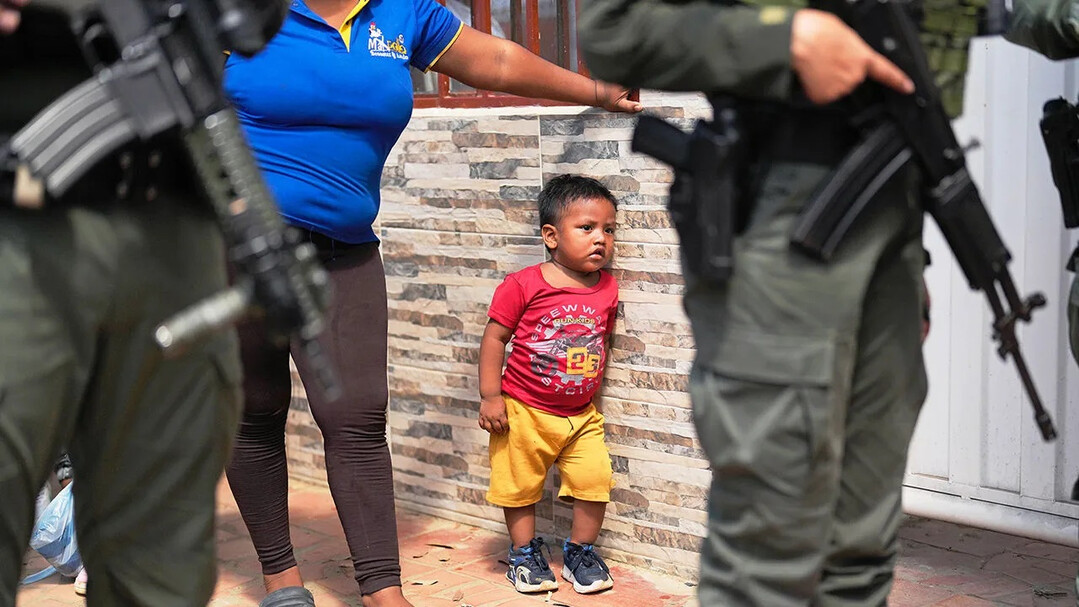
Catatumbo, Colombia – The volatile Catatumbo region along the Colombia-Venezuela border has become a battleground for armed groups, leaving a trail of grave human rights abuses and triggering one of the largest mass displacements in Colombia in recent decades. Fierce fighting between the National Liberation Army (ELN) and a dissident faction of the former Revolutionary Armed Forces of Colombia (FARC), known as the 33rd Front, has resulted in the killing, assault, kidnapping, and disappearance of countless civilians, exposing the dire consequences of limited government protection in the area.
Since January 16, 2025, the ELN launched an aggressive campaign to reassert control over the strategic Catatumbo region in North Santander state. Accusing residents of collaborating with the rival 33rd Front, ELN fighters have reportedly targeted community leaders, members of peasant organizations like ASUNCAT (Association for Peasant Unity of Catatumbo), and former FARC combatants who demobilized under the 2016 peace accord. The ensuing violence and retaliatory actions by both sides have forced over 56,000 people to flee their homes, a staggering figure that surpasses the total displacement across the entire country in 2024.
"Our research points to widespread abuses against ordinary people by the ELN as it fights to regain control over Catatumbo," stated Juanita Goebertus, Americas director at Human Rights Watch. "The people we interviewed also detailed grave abuses by the 33rd Front, including recruiting children and forced labor, with no protection by state authorities."
Human Rights Watch's findings, based on interviews with over 65 individuals including displaced persons, aid workers, and authorities, paint a grim picture of the escalating crisis. Many interviewees, fearing reprisal, spoke on condition of anonymity, highlighting the climate of terror pervading the region. The organization corroborated these accounts with reports from the Human Rights Ombudsperson’s Office and the UN Office for the Coordination of Humanitarian Affairs (OCHA), as well as verified photographic and video evidence.
Strategic Region, Entrenched Conflict
Catatumbo's significance lies in its role as a key hub for drug production and trafficking, a lucrative enterprise that has long fueled the presence and power of armed groups. The ELN, in particular, has reportedly benefited from the complicity of Venezuelan security forces, further complicating efforts to establish security in the area.
Prior to the recent surge in violence, an uneasy "armed coexistence agreement" had existed between the ELN and the 33rd Front since 2018. However, this fragile truce shattered on January 16 when ELN fighters launched coordinated attacks across five municipalities, signaling a decisive push to eliminate their rivals.
Brutal Tactics and Civilian Suffering
Witness accounts detail the brutal tactics employed by both groups. The ELN has been accused of conducting targeted killings, forcibly disappearing individuals suspected of ties to the 33rd Front, and laying siege to communities. Displaced individuals recounted instances of ELN fighters storming homes, executing perceived enemies in public, and preventing families from recovering the bodies of their loved ones.
The 33rd Front, while ostensibly engaged in peace talks with the Colombian government, has also been implicated in widespread abuses. Residents reported the group's increasing social control, enforced through threats, killings, and forced labor as punishment for perceived infractions. Disturbingly, allegations of child recruitment and the operation of "resocialization camps" where individuals are subjected to forced labor and even sexual violence have emerged. One harrowing account detailed the public execution of a couple by 33rd Front fighters within such a camp.
Children at Extreme Risk
The recruitment of children by armed groups has been a long-standing problem in Catatumbo, but the recent intensification of conflict has exacerbated the issue. Fearful of forced recruitment by both the ELN and the 33rd Front, many families have fled their homes. Authorities reported recovering 44 children from armed groups between January 1 and February 19 alone, a figure believed to be only a fraction of the actual number. The disruption of education has also placed children at greater risk, with over 46,900 students unable to attend school and hundreds of teachers fleeing the region.
Mass Displacement Overwhelms Resources
The sheer scale of the displacement has overwhelmed local and regional resources. Over 56,500 individuals, representing more than 14 percent of Catatumbo's population, have been forcibly displaced. The majority have sought refuge in cities like Cúcuta and Ocaña, straining the capacity of temporary shelters and humanitarian aid organizations. While local authorities and humanitarian groups have made efforts to provide assistance, displaced individuals report overcrowded conditions, fear of retaliation even in displacement camps, and severe psychological distress. Some are even contemplating a return to the conflict zone due to the dire conditions in displacement.
Government Response and Challenges
The Colombian government declared a "state of emergency" in Catatumbo on January 24, deploying the military to evacuate at-risk populations and announcing local development and security measures, including a coca crop substitution program. However, the effectiveness and long-term impact of these measures remain uncertain.
Peace talks with both the ELN and the 33rd Front have faced significant setbacks. Negotiations with the ELN were suspended following the upsurge in violence, while the 33rd Front reportedly used a government-backed ceasefire to consolidate its power and recruit more members. Local development projects, intended to build trust and offer alternatives to coca cultivation, have inadvertently placed civilians who participated in their planning at increased risk of ELN attacks.
Urgent Need for Comprehensive Action
Human Rights Watch has called on the Colombian government to urgently implement an effective, rights-respecting security and justice policy to protect the vulnerable population of Catatumbo and re-establish the rule of law. The organization also stressed the importance of ensuring that coca replacement programs are implemented in a way that genuinely supports farmers' transition to legal economies without creating perverse incentives for further violence.
Donor governments are urged to provide much-needed humanitarian aid to address the immediate needs of the displaced population and to support long-term development initiatives in the region.
The crisis in Catatumbo underscores the persistent challenges of armed conflict and weak state presence in Colombia's border regions. Without a comprehensive and sustained effort to protect civilians, ensure justice for abuses, and promote sustainable development, the people of Catatumbo will continue to suffer the devastating consequences of this ongoing conflict.
[Copyright (c) Global Economic Times. All Rights Reserved.]






























